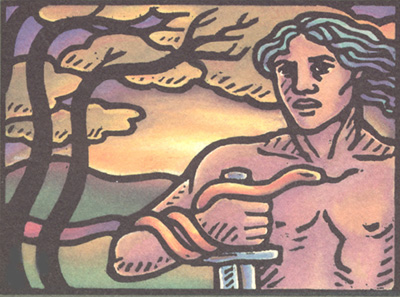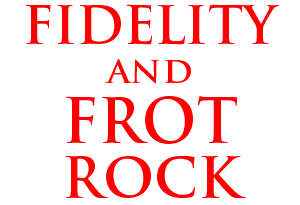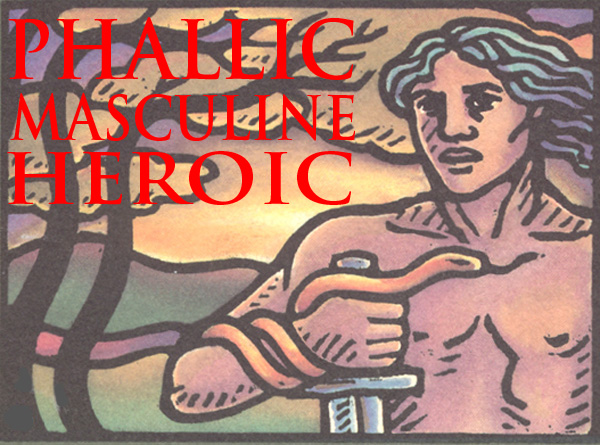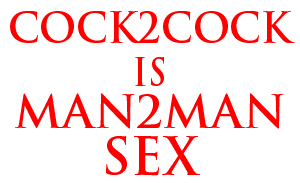




Imperfect Unions



Imperfect Unions
8-18-2004
This is an excellent op-ed which appeared in the NY Times on Sunday, and which is very germane to our discussions about Fidelity.
I've underlined some passages for emphasis, which I hope is not too annoying.
And have added some comments following the piece.
By JONATHAN RAUCH
The NY Times, August 15, 2004
Washington - What happened to Governor McGreevey - that is, James E. McGreevey, the Democratic governor of New Jersey, who announced his resignation on Thursday because he was secretly gay and had "shamefully" conducted an extramarital affair - was strange, to say the least. Pundits wondered whether there would be broader ramifications for gay civil rights, same-sex marriage or American politics. I doubt it. A rich and seemingly unique concatenation of homosexuality, adultery, suspicions of political featherbedding, and rumors of extortion and sexual harassment made the McGreevey scandal look like an aberration.
What happened to Mr. McGreevey - the man, not the governor - was not strange at all. It was familiar to almost every gay American of Mr. McGreevey's generation. Marriage, not homosexuality, lies at the heart of it.
Mr. McGreevey is 47. I am 44. We have in common being among the early members of the post-Stonewall generation. We came of age in the 1970's, when overt expressions of anti-gay animus were becoming unacceptable in polite company. The worst of official repression was past. Vice-squad raids and scandalous arrests and federal witch hunts were not central fears in our lives. There was still plenty of unofficial discrimination and ugly and ignorant rhetoric, and we all feared the low-grade terrorism known as gay-bashing. But on the whole we were free, as no previous generation had been, to get on with our lives.
There was one thing, however, we knew we could never aspire to do, at least not as homosexuals. We could not marry.
By that I mean not just that gay couples could not marry. Self-acknowledged gay people - coupled or single, adult or adolescent, open or closeted - also could not hope to marry. The very concept of same-sex marriage had yet to surface in public debate. We grew up taking for granted that to be homosexual was to be alienated and isolated, not just for now but for life, from the culture of marriage and all the blessings it brings.
Social-science research has established beyond reasonable doubt that marriage, on average, makes people healthier, happier and financially better off. More than that, however, the prospect of marriage shapes our lives from the first crush, the first date, the first kiss. Even for people who do not eventually choose to marry, the prospect of marriage provides a destination for love and the expectation of a stable home in a welcoming community.
The gay-marriage debate is often conducted as if the whole issue were providing spousal health insurance and Social Security survivors' benefits for existing same-sex couples. All of that matters, but more important, and often overlooked, is the way in which alienation from marriage twists and damages gay souls. In my own case, I did not understand and acknowledge my homosexuality until well into adulthood, but I somehow understood even as a young boy that I would probably never marry. (Children understand marriage long before they understand sex or sexuality.) I coped by struggling for years to suppress every sexual and romantic urge. I convinced myself that I could never love anybody, until the strain of denial became too much to
bear.
Others coped differently. Some threw themselves into rebellion against marriage and the bourgeois norms it seemed to represent. Some, to their credit, built firmly coupled gay lives without the social support and investment that marriage brings. And some, determined to lead "normal" lives (meaning, largely, married lives), married.
At what point Mr. McGreevey realized and acknowledged he was gay I don't know. I do know that many gay husbands begin by denying and end by deceiving. Perhaps that was so in his case.
Opponents of same-sex marriage sometimes insist that gays can marry. Marriage, they say, isn't all about sex. It can be about an abstinent, selfless love. Well, as Benjamin Franklin said, where there is marriage without love there will be love without marriage. I'm always startled when some of the same people who say that gays are too promiscuous and irresponsible to marry turn around and urge us into marriages that practically beg to end in adultery and recklessness.
For most human beings, the urge to find and marry one's other half is elemental. It is central to what most people regard as the good life. Gay people's lives are damaged when that aspiration is quashed, of course. Mr. McGreevey can probably attest to that. But so are the lives of spouses, of children. Mr. McGreevey can probably attest to that, too.
The country is still making up its mind about same-sex marriage. Massachusetts has it. Most states have pre-emptively banned it. On Thursday, the California Supreme Court invalidated about 4,000 same-sex marriages performed by the city of San Francisco, but gay-marriage
advocates hope that this is a temporary setback. Through litigation now working its way through the system, California's highest court may yet overturn the state's gay-marriage ban.
The McGreevey debacle suggests why all Americans, gay and straight alike, have a stake in universalizing marriage. The greatest promise of same-sex marriage is not the tangible improvement it may bring to today's committed gay couples, but its potential to reinforce the message that marriage is the gold standard for human relationships: that adults and children and gays and straights and society and
souls all flourish best when love, sex and marriage go together. Nothing will ever make the discovery of homosexual longings easy for a young person. But homosexuality need not mean growing up, as Jim McGreevey and I and many others did, torn between marriage and love.
Jonathan Rauch is the author of "Gay Marriage: Why It Is Good for Gays, Good for Straights and Good for America."
Commentary from Bill Weintraub:
This is on the whole an excellent piece.
Although there are a couple of points on which I'd disagree strongly with Mr Rauch.
The first is where he characterizes gay-bashing -- that is, physical assault upon homosexual men and women -- as "low-grade terrorism."
Speaking as someone who's done his share of anti-violence work, there is no such thing as "low-grade" terrorism.
Terrorism is terrorism.
Physical assault and the terror it brings with it are the first tools of the oppressor; and without freedom from physical oppression, no other freedoms are meaningful.
Further, it matters not to the victim whether the perp wielded a bomb or a gun or a lead pipe or a fist -- people are killed by the terror known as gay-bashing, and if they survive, they often bear their physical injuries for the rest of their lives, while the psychological wounds never completely heal.
It is always a mistake, therefore, to downplay the damage done by bashing.
Nor do I remotely agree with Mr Rauch's closing assertion that "Nothing will ever make the discovery of homosexual longings easy for a young person."
All we need do to make that discovery easy is tell people the truth: that homosexual longings are natural and normal and part of being human.
And I have no doubt that within the next decade that message will have gotten out.
However, those two bits excepted, Mr. Rauch makes a number of terrific points which we'd all do well to bear in mind:
That marriage is "the gold standard for human relationships"; that "social-science research has established beyond reasonable doubt that marriage, on average, makes people healthier, happier and financially better off"; that "For most human beings, the urge to find and marry one's other half is elemental ... [and] central to what most people regard as the good life."
He also speaks, correctly, of "the way in which alienation from marriage twists and damages gay souls"; and quotes Benjamin Franklin to the effect that "where there is marriage without love there will be love without marriage" -- something those of you who think you can settle for an analist relationship need to think about.
And Mr Rauch quite properly recognizes that "Some [gay people], to their credit, built firmly coupled gay lives without the social support and investment that marriage brings."
Which is true.
But there's no substitute, in my view, for cultural and social approval.
Most of the men on this site have had to swim against the tide of two cultures -- gay and straight -- all of their lives.
Anything that can be done to ameliorate their condition, is to the good.
And that includes the legalization of gay marriage.







AND


Warriors Speak is presented by The Man2Man Alliance, an organization of men into Frot
To learn more about Frot, ck out What's Hot About Frot
Or visit our FAQs page.

| Heroes Site Guide | Toward a New Concept of M2M | What Sex Is |In Search of an Heroic Friend | Masculinity and Spirit |
| Jocks and Cocks | Gilgamesh | The Greeks | Hoplites! | The Warrior Bond | Nude Combat | Phallic, Masculine, Heroic | Reading |
| Heroic Homosex Home | Cockrub Warriors Home | Heroes Home | Story of Bill and Brett Home | Frot Club Home |
| Definitions | FAQs | Join Us | Contact Us | Tell Your Story |

© All material on this site Copyright 2001 - 2010 by Bill Weintraub. All rights reserved.




